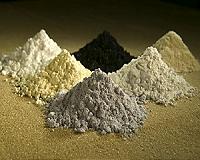| . |  |
. |
Seoul (AFP) Nov 12, 2010 G20 leaders vowed Friday to avoid currency manipulation and trade protectionism, but bad blood between China and the United States blocked deeper progress in rebalancing the skewed global economy. After a stormy two-day summit, the leaders of the world's biggest rich and emerging economies agreed to craft "indicative guidelines" to reorient imbalanced trade between surplus and deficit nations. Due to Chinese-led resistance to binding trade targets, that was far less ambitious than sought by the United States, which is nursing a hangover from its worst recession since the 1930s. US President Barack Obama renewed an offensive on the Chinese yuan, which critics say is kept deliberately cheap to support Chinese exporters at the expense of US jobs. "It is undervalued and China spends enormous amounts of money intervening in the market to keep it undervalued," Obama told a news conference in Seoul, continuing a jobs-themed Asian tour after a mid-term electoral drubbing. Obama, Chinese President Hu Jintao and the other G20 leaders warned that "risks remain" to the global economy and said that "uncoordinated policy actions will only lead to worse outcomes for all". In a statement, they pledged to move "toward more market-determined exchange rate systems" and to refrain from "competitive devaluation of currencies". They renewed calls for the World Trade Organisation's "Doha round" of talks to be concluded next year, and expressed commitment "to resisting all forms of trade protectionism". President Hu had presented his own counter-proposals in Seoul, calling on the debt-burdened United States to adopt "responsible policies" and maintain a stable dollar. The Chinese leader, who presides over the world's second-largest economy and its largest exporter, demanded global resistance to trade barriers as he painted a bleak picture of the economic outlook. "The international financial markets are volatile, the fluctuation in the major currencies is large, prices of commodities are high, and there is a clear rise in protectionism," he said. The G20 statement was only struck after a week of late-night negotiating sessions in Seoul. It risks being seen by markets as toothless, shorn of US proposals to limit trade surpluses and deficits to a specific level. Marco Annunziata, chief economist with the UniCredit Group in London, said the G20 had flunked its test after acting decisively to ward off a global panic in late 2008. "The worst the G20 could have done is to just diplomatically paper over conflicts and tensions that keep brewing more and more dangerously", he told AFP. China, backed by other export titans such as Germany, intensified an anti-US offensive last week when the Federal Reserve instituted a 600-billion-dollar attempt to reflate the US economy. They argue that the Fed's "quantitative easing" policy is a back-door way for the United States to depress the dollar and trade its way back to prosperity, at the expense of export-reliant countries around the world. In the end, the G20 leaders settled for vague language and an indeterminate timetable on redressing trade imbalances. They told their finance ministers to write the non-binding guidelines "and pursue the full range of policies conducive to reducing excessive imbalances and maintaining current account imbalances at sustainable levels". The International Monetary Fund was asked to support the process, and the G20 leaders endorsed a shake-up at the IMF that will give emerging powers including China a bigger say in its running. IMF managing director Dominique Strauss-Kahn acknowledged that the G20 was finding the going tougher today than when it hurried to roll out stimulus plans worldwide in the face of the financial crisis. "We were on the edge of the precipice," he said in Seoul. "Now, it is more difficult to organise cooperation when people think the crisis is over," Strauss-Kahn said. "But I am fairly optimistic. The process will need more than one or two summits to adjust." British Prime Minister David Cameron said the agreement to work towards "indicative guidelines" on trade distortions was a small but necessary advance. "This was never going to be solved overnight but the key thing is this -- it is being discussed in a proper multilateral way without resort to tit-for-tat measures and selfish policies," he said. The G20's chairmanship passed Friday to French President Nicolas Sarkozy, who promised thorough debate on the world economy despite "colossal" challenges.
Share This Article With Planet Earth
Related Links Global Trade News
 Japan says China still blocking rare earth exports
Japan says China still blocking rare earth exportsSeoul (AFP) Nov 11, 2010 Shipments of valuable rare earth minerals from China to Japan still appear to be on hold, Japanese officials said Thursday, urging Beijing to resume exports after a diplomatic row. "There is no noticeable progress in this regard," Hidenobu Sobashima, deputy director general at the foreign ministry, told reporters as the G20 group of rich and emerging nations opened a two-day summit in Seoul. ... read more |
|
| The content herein, unless otherwise known to be public domain, are Copyright 1995-2010 - SpaceDaily. AFP and UPI Wire Stories are copyright Agence France-Presse and United Press International. ESA Portal Reports are copyright European Space Agency. All NASA sourced material is public domain. Additional copyrights may apply in whole or part to other bona fide parties. Advertising does not imply endorsement,agreement or approval of any opinions, statements or information provided by SpaceDaily on any Web page published or hosted by SpaceDaily. Privacy Statement |